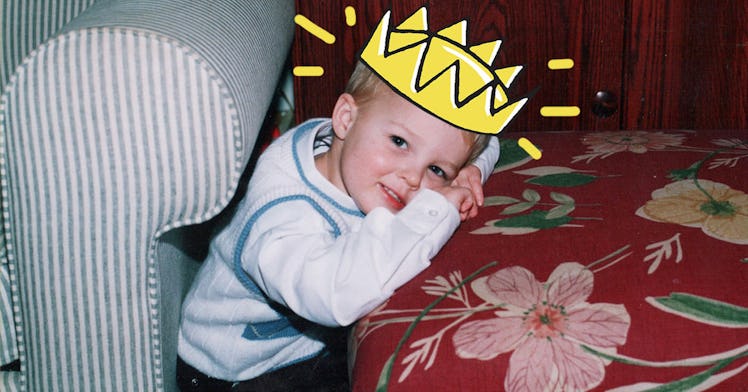Why Raising a Polite Kid Still Matters
Teaching a kid to say please and thank you or use honorific when addressing adults may feel old fashioned. It isn't.

Raising polite children feels like an odd priority during an era of cultural and personal incivility — all those screaming headlines and angry texts. Digital communication has rendered certain rituals of politeness — formal salutations, thank yous, clear responses to invitations — virtually obsolete. But humans still interact in person and the interface that children present to the world still has to be user-friendly. Good manners help immeasurably. Teaching children politeness not only makes socialization easier, it prepares kids for jobs, friendships, and relationships. It also, research suggests, may help with their mental health.
“Raising our kids to say please and thank you, to use mister and missus, to look someone in the eye and shake their hand, or begin and end a conversation appropriately right — these feel like old-fashioned things we teach,” says Dr. Robert Zeitlin, positive psychologist and author of Laugh More, Yell Less: A Guide to Raising Kick-Ass Kids. “But this is a way of communicating and communication is not dead. We should look at what we need to do to communicate effectively — to recognize another person is there.”
To Zeitlin’s point, polite children sometimes seem like they’ve arrived via time machine. Some of this is due to culture itself getting less formal. Children may not be taught to deploy honorifics outside of school because parents see this as stilted. That’s not necessarily a bad thing, but it can become problematic when being informal turns into being thoughtless, which does happen.
Zeitlin notes that when parents teach children to be polite, they are also teaching them active listening and empathy. The rituals of politeness may feel rote but politeness is, at its core, a sort of codified kindness and having a muscle memory for how to be kind is important. Behavior affects well-being.
“There’s something about listening and waiting your turn, recognizing there is another person in the room, that puts a structure to things that place your needs next for a second,” says Zeitlin. Understanding social codes helps kids develop “frustration tolerance.” Kids learn to put off smaller, immediate rewards for greater rewards down the line. Politeness (“Yes, I’ll pass the candy bowl”) is essentially an exercise in social investment versus personal payoff. Zeitlin notes that children who can eschew short-term rewards tend to do better in life.
“You know the ability to really tolerate that frustration for a moment goes a long way in terms of connecting with someone else,” he says. “And it’s basically at the roots of politeness manners that we teach.”
Importantly, children don’t necessarily have to understand why they are being polite to get the benefits. In fact, they may not even have the ability to understand, considering younger kids are less developed in their ability to think about thinking, also known as metacognition.
Dr. Andrea Hussong, a professor in the Department of Psychology and Neuroscience at UNC, conducts research into gratitude, which is often a function of politeness. She notes that true gratitude has four parts. First, kids must notice and think about what another person has done for them. Then they have to feel the gratitude and offer gratitude through words and actions. But younger kids can’t really perform the thinking and feeling parts of gratitude as much as the doing parts.
“For the younger kids, it’s more about the actions and they’re not really understanding it yet until they get older,” Hussong says. “Part of it is that as their brains mature they literally have to have more advanced brain structures to do perspective taking.”
So, kids may not get the idea that their show of gratitude is a heartfelt reaction to another person’s selfless behavior. They may not, to put it slightly differently, “mean it.” It doesn’t matter. Developmentally, the emotions will sort themselves out. Creating habits is a totally fine place to start.
“We like to talk about how often we catch kids having ‘gratitude moments’ rather than if they are a grateful kid,” Hussong says. And it might be the same with politeness. Because the deeper motivations of politeness — those feelings that make it genuine and sustainable — may need to develop with age. Marking politeness moments, however, is a good way to establish a benchmark and continue the development of a working, mature politeness that pays dividends in better relationships.
“Socialization is like learning to read and write,” explains Hussong. “Politeness is like learning your letters.”